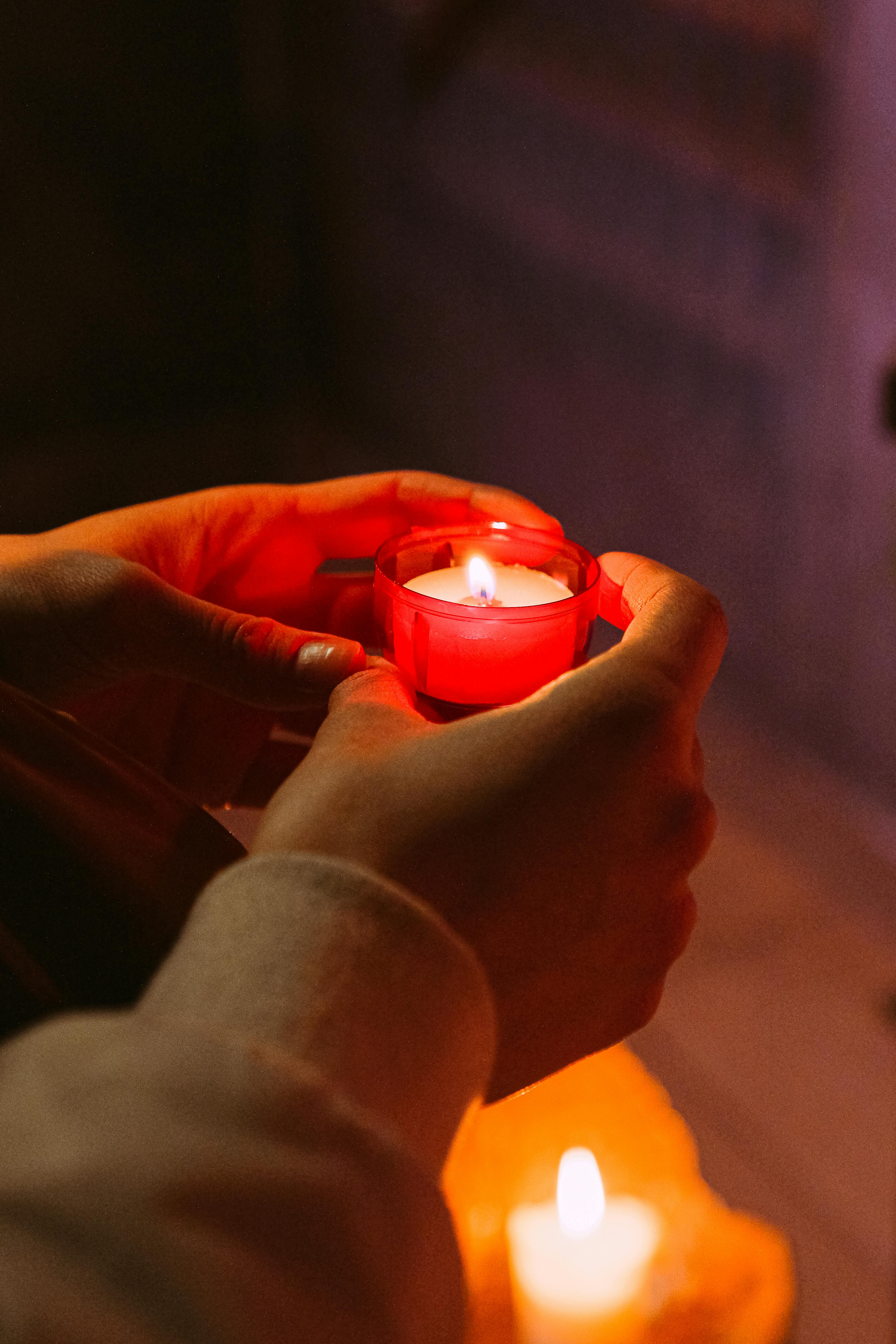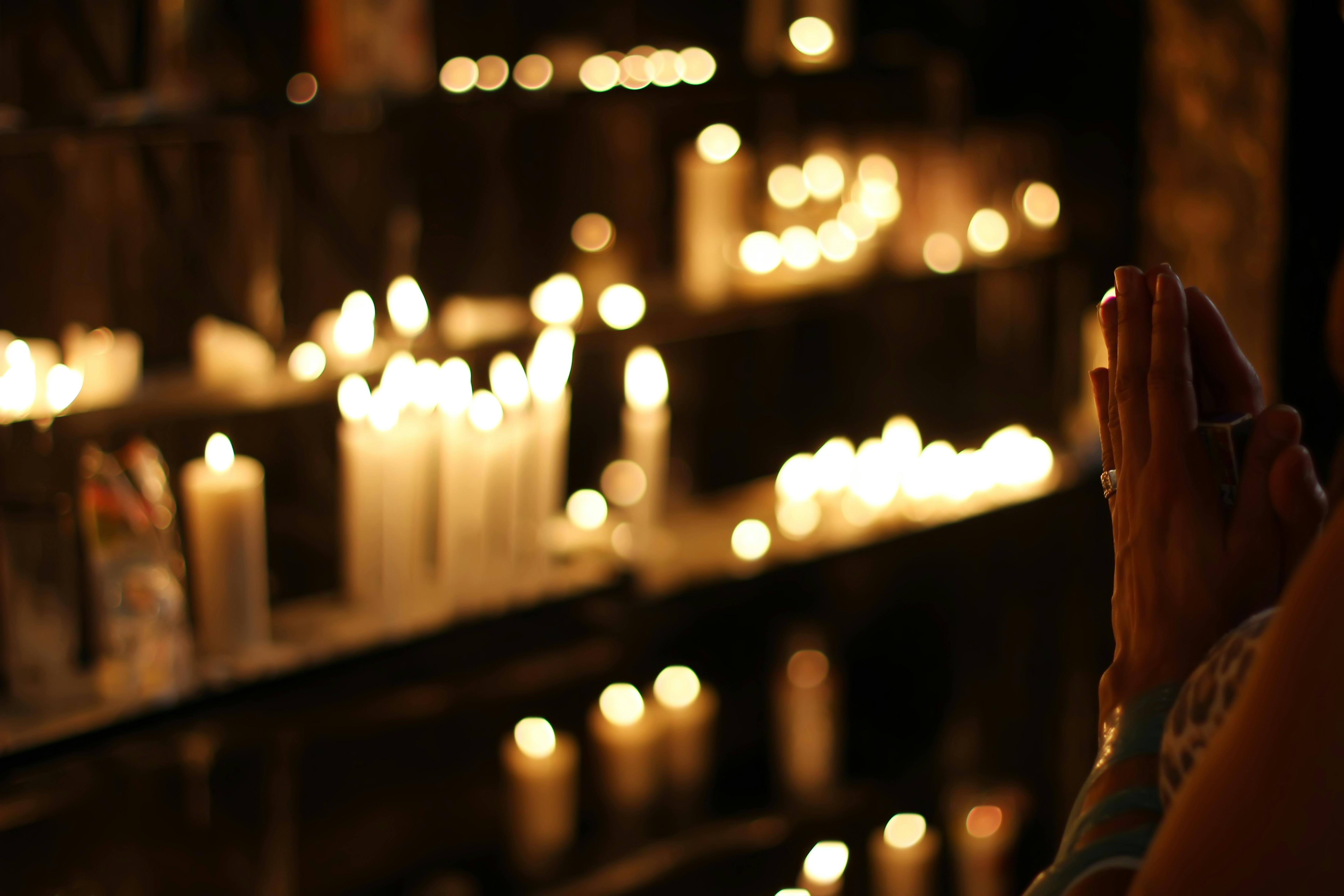From Plains To The White House: Jimmy Carter’s Legacy For Evangelicals

When Jimmy Carter ran for president in 1976, he mentioned almost casually that he was a “born-again Christian.” In an era before the rise of the Christian Right and “evangelical politics,” Carter’s comment sent reporters scurrying to figure out what “born-again” meant.
Other than in 1928 and 1960 when Roman Catholics (Al Smith then John F. Kennedy) ran for president, the only thing voters wanted to know about a candidate’s religion was what mainline denomination he belonged to. Calling oneself born again was too much information in an era where religion was considered a private matter.
After due research, John Chancellor of NBC Nightly News comforted his presumably perplexed viewers, starting his broadcast awkwardly, saying, “We have checked on the religious meaning of Carter’s profound experience. It is described by other Baptists as a common experience, not something out of the ordinary.”
Carter’s candidacy created such an evangelical buzz that Newsweek magazine deemed 1976 “The Year of the Evangelical.”
Carter died last week at the age of 100. A public funeral will be held on Thursday, January 9, at 10 a.m. at the Washington National Cathedral. Afterward, his body will be brought to Plains, Georgia, for a private service at Maranatha Baptist Church, where he taught Sunday school. On January 9 at 5:20 p.m., he will be interred next to his wife at their family home in Georgia.
Among prominent Baptists, responses to Carter’s life and legacy have been mixed. David Dockery published a fascinating historical anecdote while Al Mohler offered critical assessment. This article describes the post-Watergate America that elected Carter and traces this history through the rise of the Christian Right who rejected him.
Baptist Roots
James Earl Carter Jr. was born in Plains, Georgia, on October 1, 1924. While serving just one term as United States president (1977–81), he enjoyed the longest career as former president in all of American history and is the only president to live through the 40th anniversary of his inauguration.
Carter’s candidacy created such an evangelical buzz that Newsweek magazine deemed 1976 ‘The Year of the Evangelical.’
Carter’s mother, Bessie Lillian, was a registered nurse, and his father, James Earl Carter Sr., was a businessman and farmer. While Carter’s parents were nominal churchgoers, they made sure Jimmy and his siblings, Gloria and Ruth, attended the Plains Baptist Church regularly.
The church became the central institution in Carter’s formative years. He attended Sunday school and worship on Sunday mornings and evenings, along with his membership in the midweek boys’ missions training organization called Royal Ambassadors. Following a profession of faith at age 11, Carter was baptized and became a full church member.
Following high school in Plains, Carter attended the Naval Academy and was commissioned as an officer after his graduation in 1946. He met Rosalynn Smith, also from Plains, and the two were married. Carter cut short his naval career to take over the family agribusiness after his father’s untimely death from pancreatic cancer in 1953. For the next 13 years, the couple ran the enterprise; Jimmy directed and did much of the physical labor, while Rosalynn kept the books.
The Carters resumed active participation in the Plains Baptist Church, where Jimmy became head of the Junior High Department and served as a deacon.
Christian Commitment to Justice
A central feature of Carter’s religious activism was his stance against segregation, something that put him at odds with neighbors, customers, and fellow deacons. When the Billy Graham Evangelistic Association planned to show a film at the theater in nearby Americus, white supporters backed away after learning the association refused to segregate the meeting. Carter, therefore, volunteered to chair the local organizing committee, and the event became allegedly the first integrated meeting in Sumter County, Georgia, since the 19th century.
Carter’s racial views at the time should probably be described as moderately progressive, but those views emanated from his deep Christian commitment to justice, and by the early ’60s he yearned for greater public service.
In 1962, he ran for his district’s seat in the Georgia senate. He won and was reelected in 1964, which set him up for his first gubernatorial campaign in 1966, where he finished third in the primary.
Spiritual Reawakening
Following a bruising campaign, Carter entered something of a spiritual crisis, as he contemplated what seemed like the end of his brief political career. He even questioned his Christian commitment, which had largely shaped his desire for public service in the first place. His sister, Ruth Carter Stapleton, served as his confidant and spiritual advisor during this time. She had experienced a rededication of Christian commitment herself in 1959, which led to her becoming an evangelist.
Carter yearned for that sort of experience. He also realized the time and energy he had expended in his attempt to become governor, crisscrossing the state and speaking to roughly 300,000 people as he campaigned. By contrast, he estimated that in his years since returning to Plains, he’d witnessed for Christ to maybe 140 people via church visitations twice a year.
At roughly this time, he heard a sermon titled “If You Were Arrested for Being a Christian, Would There Be Enough Evidence to Convict You?” The question haunted Carter as he came to believe he’d never completely committed himself to Christ.
He experienced the rededication he longed for, and in 1967 and 1968 he went on short-term mission trips sponsored by the Southern Baptist Home Mission Board (now known as the North American Mission Board). In Pennsylvania and Massachusetts, he went door to door witnessing for Christ and attempting to meet social needs in a poverty-stricken Puerto Rican neighborhood in Springfield, Massachusetts. Carter also implemented regular family prayer and Bible reading and dedicated himself to becoming the best politician God would allow him to be.
He ran for governor again in 1970 and was victorious, subsequently serving two terms. As governor, his moderately progressive racial views surfaced again when he had a portrait of fellow Georgia Baptist Martin Luther King Jr. hung in the Capitol Building in a ceremony that included a mixed-race choir singing “We Shall Overcome,” as the Ku Klux Klan marched in protest outside.
Born-Again Candidate
While governor, Carter sought and won leadership positions within the national Democratic Party, first as chair of the Democratic Governors’ Campaign Committee and then as campaign chair of the Democratic National Committee. In the wake of the Watergate scandal, Carter came to believe he might be able to restore moral order in a nation adrift.
He announced his candidacy in late 1974, just months after Nixon’s resignation. When he decided to run for the Democratic nomination, his national name recognition was gauged to be 2 percent. But through the same tireless and optimistic campaigning he’d exhibited in his races for governor, Carter won the nomination then campaigned for president, promising the American people, “I will never lie to you.”
Carter ran against incumbent president Gerald Ford. Chosen by Nixon as vice president after the resignation of Spiro Agnew, Ford remains the only president in American history never elected as president or vice president. Although he came into the administration after Watergate, he bore the stigma of the Nixon presidency. He also hurt his cause by pardoning the disgraced president, a move generally viewed today as beneficial to the nation’s recovery but nevertheless unpopular at the time.
Carter, for his part, nearly squandered his significant lead over Ford late in the campaign by giving an interview to the salacious, soft-porn magazine Playboy. In an era when evangelicals touted personal morality for their political candidates, the decision alienated and enraged some of Carter’s evangelical supporters.
His popularity was also hurt two days before the election when an African American minister was denied entry to the worship service at the Plains Baptist Church. Despite these setbacks, Carter won largely because he garnered such a high percentage of the minority vote.
The evangelical vote in 1976 split between Carter and Ford, but many evangelicals were thrilled to have one of their own in the White House. Carter was the first president in their lifetime who’d spoken openly about being born again.
Complex Social Views
But Carter wasn’t as conservative as most evangelicals today—politically, socially, or theologically. He admired and was influenced by theologian Reinhold Niebuhr, socially he drank alcohol occasionally, and his moral convictions were consistent with the positions of the mainline left.
For example, while he said he was opposed to a homosexual lifestyle (he has since changed on this issue), he believed the government should nevertheless protect the rights of gay people. When his administration organized a major conference on the family, the participants were so diverse they couldn’t agree on what a family was.
Similarly, while opposed to abortion, he supported Roe v. Wade (1973) as the law of the land. And his Baptist views on the separation of church and state set him in opposition to organized prayer in public schools.
Still, the precipitating event in the evangelical turn against Carter may have been his administration’s support of the IRS’s attempt to strip Bob Jones University (BJU) of its tax-exempt status because the school prohibited interracial dating. The IRS first went after BJU in 1975, then in 1978 broadened the effort to strip tax-exempt status from private schools that were de facto segregated. This came as many evangelical groups in the South opened Christian “segregationist academies” to resist federally mandated integration of public schools.
As Republican operative and key Christian Right organizer Paul Weyrich put it, “What galvanized the Christian community was not abortion, school prayer, or the ERA [Equal Rights Amendment]. . . . I was trying to get those people interested in those issues and I utterly failed. What changed their mind was Jimmy Carter’s intervention against the Christian schools, trying to deny them tax-exempt status on the basis of so-called de facto segregation.”
But Weyrich also acknowledged that evangelicals believed they could use private schools as part of their resistance to the ERA, the abortion and school prayer decisions, morally neutral sex education, and all other influences of secular humanism. And when the government came after those schools, they realized private opposition would no longer work. Their disillusionment with Carter emanated from their fear that government was hostile to traditional Christian morality and their evangelical president’s administration was part of the problem, even as race also played a significant role. The only answer was to get involved politically.
Whatever the causes, it had become obvious that Carter was a different type of evangelical than Jerry Falwell, Pat Robertson, James Dobson, and the other leaders of the first-generation Christian Right.
Carter was a social justice evangelical whose views aligned with the evangelical left much more than with the Christian Right. Moreover, he possessed a civil religion that was prophetic more than priestly. Whereas priestly civil religion blesses the nation as specially chosen of God, prophetic civil religion pronounces God’s judgment over the nation for its sins of racism, poverty, and excessive use of military might. Carter’s attempt to make human rights the centerpiece of his foreign policy stood in stark contrast to a Christian Cold Warrior foreign policy whereby America would use military force and the threat thereof to battle the evils of Communism.
Carter was a social justice evangelical whose views aligned with the evangelical left much more than with the Christian Right.
Ironically, his most significant achievement came arguably in foreign policy when he summoned Israeli prime minister Menachem Begin and Egyptian president Anwar Sadat to the presidential retreat at Camp David in September 1978. The three leaders hammered out the Camp David Accords, which at the time proved immensely hopeful.
Carter believed the government should play a smaller role in protecting or promoting personal biblical morality than in pursuing justice and peace. As one of his administration officials is said to have put it with regard to Carter’s reluctance to use his office to promote Christianity, “Jimmy Carter knows more scripture and quotes less than almost any president ever.”
Crisis of Confidence
Evangelical dissatisfaction with Carter was just one part of the challenge he faced in his 1980 reelection bid. The nation was under a post-Vietnam, post-Watergate pall, with an economy that saw interest rates rise to nearly 13 percent and annual inflation to just over that. Wrapping the economic woes with an energy crisis, Carter called all this a “Crisis of Confidence” in a televised address known popularly as the Malaise Speech, a word he didn’t actually use.
Worst of all, perhaps, Carter spent the last year of his presidency with 52 Americans being held hostage by Islamic revolutionaries in Tehran. Senator Edward Kennedy ran against Carter for the Democratic Party’s nomination, announcing his candidacy just days after the attack on the United States embassy in Iran.
Meanwhile, evangelicals found what seemed to be their ideal candidate in Republican Ronald Reagan, who espoused the small government, free-market principles they liked along with a Christian Cold War posture in line with the belief that America was specially chosen by God to protect and advance freedom through military might.
Moreover, the Republican Party was on record as opposing Roe v. Wade and the pro-choice position on abortion. Early Christian Right organizations like the Moral Majority of Jerry Falwell Sr., along with the Religious Roundtable of Tim LaHaye, thrilled to Reagan’s brand of civil religion.
Active Post-Presidency
Carter became the first incumbent president since Herbert Hoover in 1932 to lose a reelection bid, and it could be argued those two went on to be the 20th century’s best former presidents.
Far from going off into the sunset of retirement, Carter’s post-presidency lasted well over half his adult life. As a globe-trotting ambassador for justice, democracy, and human rights, Carter has served as an observer in more than 100 elections in 39 countries.
In 2002, he was awarded the Nobel Peace Prize, with the Nobel committee citing as the reason for the award “his decades of untiring effort to find peaceful solutions to international conflicts, to advance democracy and human rights, and to promote economic and social development.” Among his most visible, if not most significant, justice efforts were with Habitat for Humanity, founded by friend and fellow Georgian Millard Fuller. In addition to using his influence to promote awareness and raise funds for Habitat, Carter annually appeared on the nightly news swinging a hammer on a Habitat building project somewhere in the world.
Less visible but perhaps even more significant is the ongoing work done at the Carter Center. Founded jointly by Jimmy and Rosalynn, the center is officially dedicated to “human rights and the alleviation of human suffering” and has been active in more than 80 countries, “resolving conflicts; advancing democracy and human rights; preventing diseases; and improving mental health.”
In his acceptance speech for the Nobel Peace Prize, Carter concluded with what had become his life’s motto, a quote still displayed prominently on the Carter Center website: “God gives us the capacity for choice. We can choose to alleviate suffering. We can choose to work together for peace. We can make these changes—and we must.”


